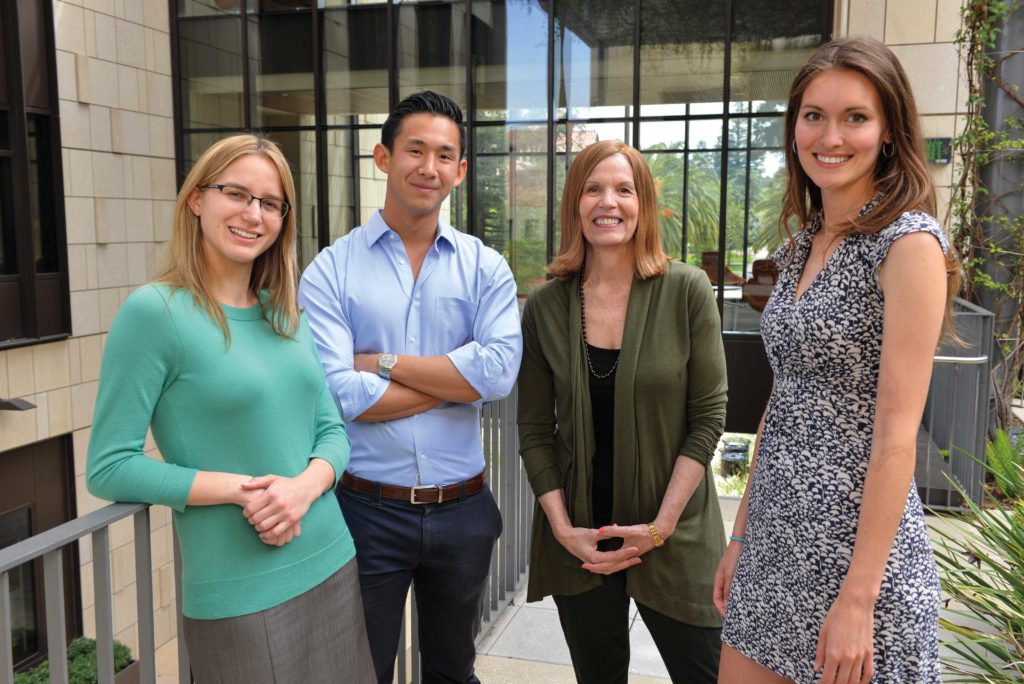People with Developmental Disabilities and the Criminal Justice System
Joan Petersilia was getting ready to teach Sentencing and Corrections in the winter of 2016 when she got a call from an old friend and former collaborator, Leigh Ann Davis. Davis, director of criminal justice initiatives for The Arc (formerly the National Association of Retarded Citizens), was reaching out to Petersilia to be on an advisory board regarding the criminal justice system’s treatment of individuals with developmental disabilities.
Petersilia had been an active scholar in the area in the 1980s and 1990s, when the mainstreaming of the developmentally disabled from state facilities into community-based homes raised a number of troubling issues.
“We saw a huge increase in both contacts with the police and the victimization of people with disabilities as large numbers became independent,” says Petersilia. “And no one really knew what to do about it.”
For years, Petersilia was the pre-eminent scholar in the area, chairing workshops, authoring papers, and with Davis developing training videos for both the disabled and the police. But Petersilia’s disability work ended in 2005 when she turned her focus to other areas. So when Davis called last winter, Petersilia was somewhat surprised to learn that no one had taken up the mantle.
“It’s such a heartbreaking topic that, in some ways, it isn’t surprising that it’s been neglected. Emotionally, it’s very hard to think about victimization of our most vulnerable citizens and data is scarce,” says Petersilia.
While Petersilia agreed to serve on the advisory board, what The Arc really needed was research. So she asked her Sentencing and Corrections class for volunteers to be part of an informal policy lab and each write a research paper on the issues that persons with developmental disabilities face from arrest through parole.
Alyssa Wright, JD ’19, was a Stanford senior who had petitioned to be in the course. Her research focused on analyzing how the police interact with the developmentally disabled, using the Los Angeles and East Palo Alto police departments as examples.
“I was shocked that the departments had no databases that cataloged this information. At most, they had some data on the use of force, with a subsection relating to offenders with mental health issues. But that included a lot of people who were not cognitively disabled,” she explains.
Wright also discovered that police training on dealing with persons with developmental disabilities was incredibly deficient. “Police are not mental health experts; they need to be taught how to evaluate a situation that may involve someone with intellectual disabilities.”

Photo by Rod Searcey
Drew Flood, JD ’18, explored issues surrounding the standards that determine whether individuals with intellectual deficiencies are competent to stand trial.
“In the death penalty context, the standards for determining whether a defendant has an intellectual disability, and therefore not subject to execution, are highly developed and scientifically based,” he says. “But in the context of competency to stand trial, it’s very mushy and totally impressionistic: The judge just decides whether a defendant can rationally understand what’s going on in court and help his lawyer with his defense; she doesn’t employ some clear, rigorous standard.”
Accordingly, Flood’s research advocates that more scientific standards from death penalty cases should apply to the competency context. He even suggests that if the defendant can prove he has an intellectual disability, there should be a rebuttable presumption of incompetence. And in severe cases of disability, the presumption should be irrebuttable.
Other students who participated in the project included Ann Linder, JD ’17, who compared laws governing consent to sexual activity by people with developmental disabilities in all 50 states; Sammy Schatz, JD ’18, who studied the problem of false confessions; Vivek Tata, JD ’16, who explored how the public perceives the cognitively disabled; Bryan Casey, JD ’18, who studied the impact of the ADA on Uber; and Nathaniel Hsieh, JD ’18, who researched what accommodations are provided to the cognitively disabled in parole board hearings.
The Arc is incorporating the students’ research into white papers that will be available on its website, and Petersilia is hopeful that this will spark renewed interest in these issues.
“It’s very frustrating that this work has limped along for decades,” she says. “There is no agency in charge of the intersection between criminal justice and persons with disabilities and no social movement afoot. Individuals with developmental disabilities have no political power and the result is that, once they are involved in the criminal justice system, nothing good happens.”
